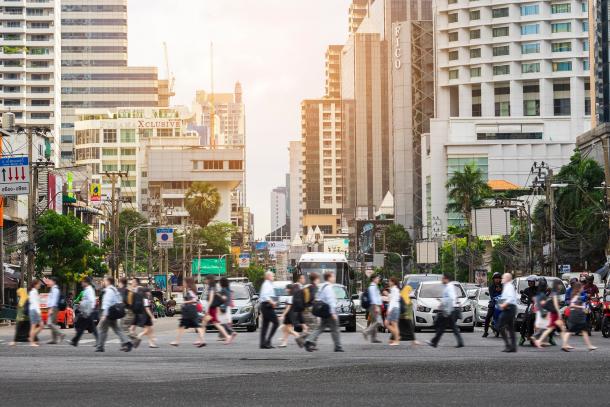Press release
UNESCO Global Network of Learning Cities: 64 new members from 35 countries

64 cities from 35 countries join the UNESCO Global Network of Learning Cities (GNLC) in recognition of their outstanding efforts to make lifelong learning a reality for all at the local level. The new cities were announced on Wednesday, during a high-level virtual event "Empowering Learners of All Ages: UNESCO Learning Cities Transform Lives".
The UNESCO Global Network of Learning Cities is an international network comprising cities that successfully promote lifelong learning across their communities. The new learning cities were added to the network on the recommendation of a jury of experts. A strong commitment to lifelong learning by the mayor and city administration and a track record of good practices and policy initiatives are key prerequisites for becoming a learning city.
Cities are key to transforming the right to education into a tangible reality for individuals of all ages. With the new admissions, the network now includes 356 member cities from all around the world that share know-how and pave the way for lifelong learning opportunities for 390 million citizens.

The new members are:
Africa
- São Filipe, Cabo Verde
- Bikok, Cameroon
- Maroua 1er, Cameroon
- Yaoundé 1er, Cameroon
- Gagnoa, Côte d'Ivoire
- Dakar, Senegal
- Chinhoyi, Zimbabwe
Arab States
- Muharraq, Bahrain
- Alexandria, Egypt
- Sharkia, Egypt
- Zefta, Egypt
- Agadir, Kingdom of Morocco
- Essaouira, Kingdom of Morocco
- Fès, Kingdom of Morocco
- Muscat, Oman
- Nizwa, Oman
- Sur, Oman
- Umm Salal, Qatar
- Al-Ahsa, Saudi Arabia
- Al Madinah Al Munawwarah, Saudi Arabia
- King Abdullah Economic City, Saudi Arabia
- Ajman, United Arab Emirates
Asia and the Pacific
- Nanjing, People's Republic of China
- Suzhou, People's Republic of China
- Legazpi, Philippines
- Buan, Republic of Korea
- Seo-gu (Gwangju), Republic of Korea
- Hanam, Republic of Korea
- Bangkok, Thailand
- Khon Kaen, Thailand
- Yala, Thailand
- Ho Chi Minh City, Viet Nam
- Son La, Viet Nam
Europe and North America
- Liège, Belgium
- Lille, France
- Senaki, Georgia
- Dresden, Germany
- Szombathely, Hungary
- Waterford, Ireland
- Fundão, Portugal
- Cugir, Romania
- Galati, Romania
- Bratislava, Slovakia
- Cerdanyola del Vallès, Spain
- Manchester, United Kingdom of Great Britain and Northern Ireland
- Wakefield, United Kingdom of Great Britain and Northern Ireland
- Lviv, Ukraine
- Sumy, Ukraine
- Ternopil, Ukraine
Latin America and the Caribbean
- Córdoba, Argentina
- Firmat, Argentina
- Curitiba, Brazil
- Leme, Brazil
- Recife, Brazil
- Azogues, Ecuador
- La Paz (Baja California Sur), Mexico
- Mérida, Mexico
- San Luis Potosí, Mexico
- Estelí, Nicaragua
- Masaya, Nicaragua
- Ocotal, Nicaragua
- Andahuaylillas, Peru
- Ica, Peru
- Santiago de Surco, Peru
New UNESCO learning cities co-lead the #ImALifelongLearner campaign
The new members of the UNESCO Global Network of Learning Cities will co-lead the #ImALifelongLearner campaign in their cities. The campaign mobilizes learners from across the globe to show their passion for learning throughout life. It underlines that the #RightToEducation must pertain to all ages.
More:
***
Press Contact: Clare O’Hagan, c.o-hagan@unesco.org
About UNESCO learning cities
Connecting education, training and cultural institutions and engaging a wide range of partners such as public-sector representatives, civil society organizations and employers is a key feature of UNESCO learning cities. They effectively mobilize resources in every sector to promote inclusive and quality learning, from basic to higher education. They revitalize learning in families and communities and facilitate learning for and in the workplace while extending the use of modern learning technologies.
About UNESCO
The United Nations Educational, Scientific and Cultural Organization contributes to peace and security by leading multilateral cooperation in education, sciences, culture, communication and information. With 194 Member States, UNESCO employs over 2000 people to coordinate a network of over 2000 protected cultural and natural sites. Headquartered in Paris with offices in 54 countries, its Director-General is Audrey Azoulay.
“Since wars begin in the minds of men, it is in the minds of men that the defenses of peace must be constructed” - Constitution of UNESCO, 1945.
More information: www.unesco.org








